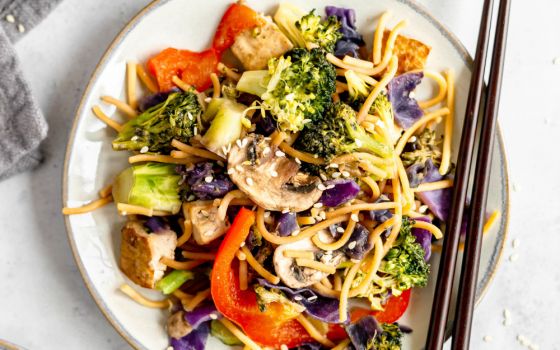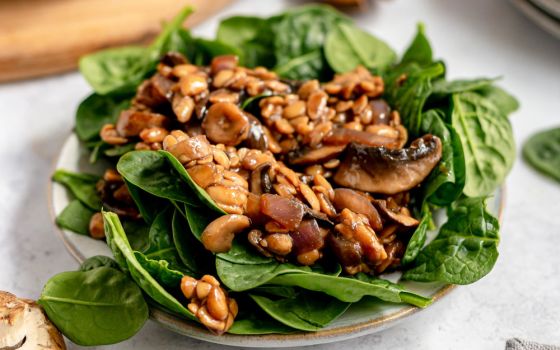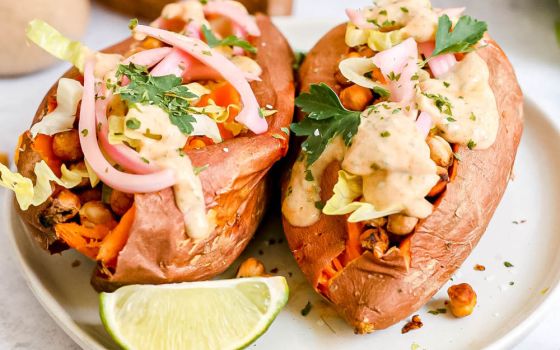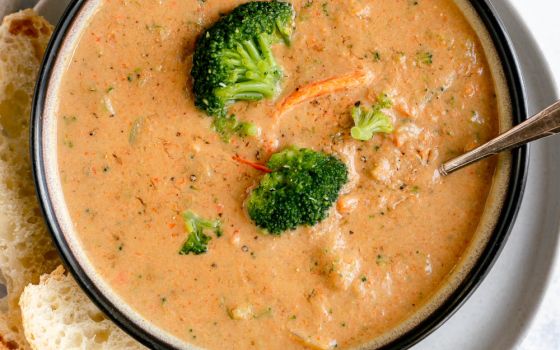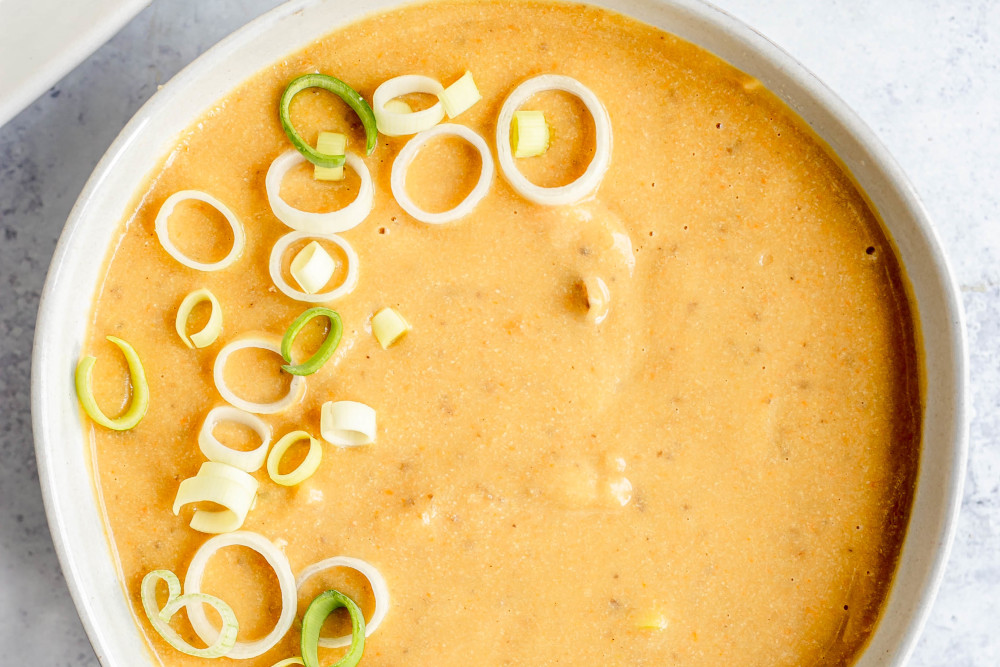
Dairy-free potato leek soup topped with chopped leeks (At Elizabeth's Table/Elizabeth Varga)
Editor's Note: In this series, Elizabeth Varga will explore how fasting from meat impacts our relationships with self, others, the rest of creation and God. Her reflections and recipes will be posted on the Wednesdays and Fridays of Lent 2022. To receive this series via email, sign up for EarthBeat Reflections.
How can what we eat be a practice of caring for others?
When speaking in a parable about the kingdom of God, Jesus indicated that the righteous would be rewarded for their good deeds: "For I was hungry and you gave me food, I was thirsty and you gave me drink, I was a stranger and you welcomed me, I was naked and you clothed me, I was sick and you visited me, I was in prison and you came to me. … Truly, I say to you, as you did it to one of the least of these my brethren, you did it to me" (Matthew 25:35, 40).
The food that we choose to eat on a daily basis has an impact beyond ourselves.
When we go to the grocery store, each food that we buy has a unique impact on our world. It carries with it a specific amount of water, energy and labor used and emissions produced. This includes everything from growing the plant or raising the animal to manufacturing or processing it to transporting it to the store to how it’s prepared and served.
Humans are currently growing enough food (measured in calories) to feed 10 billion people.
But we still face issues of world hunger, in part because many people choose to eat foods that require additional steps. For example, the meat that comes from a cow. Grains and other vegetation are grown from the ground, and then cows that are being raised for slaughter eat the grains or grass.
Advertisement
But the plants that go into a cow don’t produce beef in a 1:1 ratio. In fact, beef cattle production requires an energy input to protein output ratio of 54:1. Other animal meat products like chicken and pork have ratios higher than 1:1 as well.
This means that while we grow enough food to feed everyone, the food is not being distributed in the most efficient way. Instead of being fed directly to people who are hungry, grains are sent to be used in animal agriculture to feed animals who then can feed far fewer people.
What if we could change this? What if we could signal with our food choices how we want these grains to be distributed?
We might actually be able to do this by reducing our consumption of meat. This would create a shift in the demand and an opportunity for grains and other animal feed to be reallocated and processed directly for human consumption.
Of course, the reallocation of grains and reduction of human meat consumption are only parts of a possible solution to climate change and environmental degradation. There is much work to do through multifaceted strategies in diverse sectors.
But my choices and your choices every day are significant steps. We can signal that we care about people who don’t have access to food and that we want to prioritize their needs above our desire to eat meat.
Reducing or eliminating meat consumption can be a powerful and effective way of following Jesus’ instruction to feed the hungry.
Reflect on the amount of meat you consume regularly. Could you consider reducing your consumption as a means of following Jesus’ teaching?
Recipe: Potato leek soup
This plant-based potato leek soup is a traditional potato leek soup but without the dairy. It’s a hearty soup that will keep you warm and satisfied, with only six ingredients.
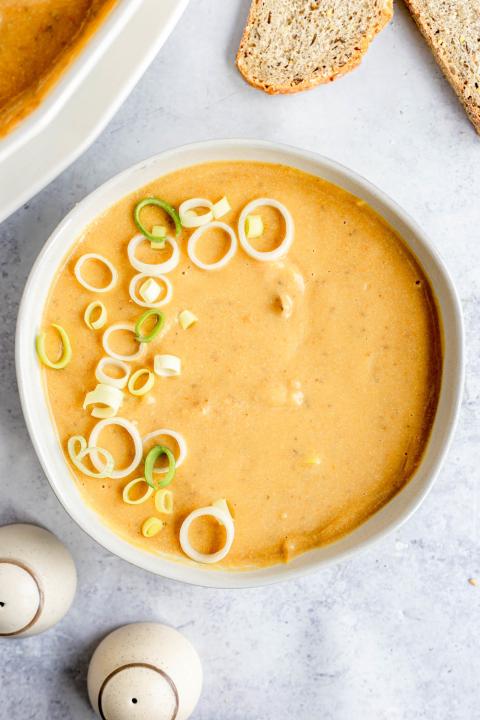
Dairy-free potato leek soup topped with chopped leeks (At Elizabeth's Table/Elizabeth Varga)
Ingredients
- 2 large russet potatoes
- 1 large carrot
- 1 large leek
- 4 cups vegetable broth
- 1/2 cup cashew cream
- Salt & Pepper to taste
Cashew cream
- 1/2 cup raw cashews
- 1/2 cup unsweetened, unflavored plant-based milk
Instructions
Cashew cream
- Soak the cashews in boiling water for about 50 minutes.
- Drain. Add the cashews and the plant-based milk to a blender or food processor and blend until smooth.
Potato leek soup
- Coarsely chop the potatoes, carrot and leek.
- Using a bit of the vegetable broth, sauté the veggies in a pot for 10 minutes.
- Add the remaining vegetable broth and the cashew cream. Simmer on medium high for 20 minutes, or until the potatoes are tender.
- Remove from the heat. Reserve 1 cup of potato chunks, if desired. Blend in a food processor until smooth, then add in the remaining chunks.
- Top with chopped leeks, if desired. Enjoy!
Find recipe notes, substitutions and other nutritional information on atelizabethstable.com.





